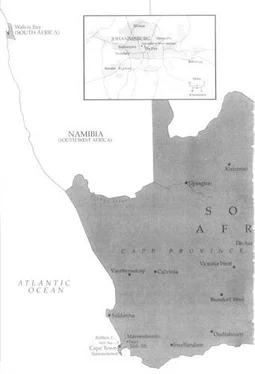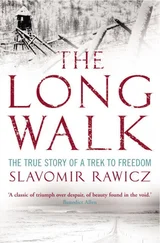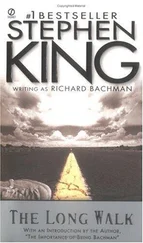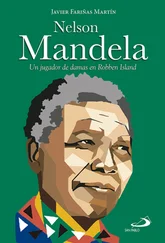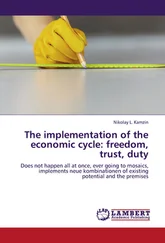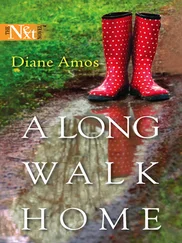Nelson Mandela - The Long Walk to Freedom
Здесь есть возможность читать онлайн «Nelson Mandela - The Long Walk to Freedom» весь текст электронной книги совершенно бесплатно (целиком полную версию без сокращений). В некоторых случаях можно слушать аудио, скачать через торрент в формате fb2 и присутствует краткое содержание. Жанр: Старинная литература, на английском языке. Описание произведения, (предисловие) а так же отзывы посетителей доступны на портале библиотеки ЛибКат.
- Название:The Long Walk to Freedom
- Автор:
- Жанр:
- Год:неизвестен
- ISBN:нет данных
- Рейтинг книги:5 / 5. Голосов: 1
-
Избранное:Добавить в избранное
- Отзывы:
-
Ваша оценка:
- 100
- 1
- 2
- 3
- 4
- 5
The Long Walk to Freedom: краткое содержание, описание и аннотация
Предлагаем к чтению аннотацию, описание, краткое содержание или предисловие (зависит от того, что написал сам автор книги «The Long Walk to Freedom»). Если вы не нашли необходимую информацию о книге — напишите в комментариях, мы постараемся отыскать её.
The Long Walk to Freedom — читать онлайн бесплатно полную книгу (весь текст) целиком
Ниже представлен текст книги, разбитый по страницам. Система сохранения места последней прочитанной страницы, позволяет с удобством читать онлайн бесплатно книгу «The Long Walk to Freedom», без необходимости каждый раз заново искать на чём Вы остановились. Поставьте закладку, и сможете в любой момент перейти на страницу, на которой закончили чтение.
Интервал:
Закладка:
My father did not subscribe to local prejudice toward amaMfengu and befriended two amaMfengu brothers, George and Ben Mbekela. The brothers were an exception in Qunu: they were educated and Christian. George, the older of the two, was a retired teacher and Ben was a police sergeant. Despite the proselytizing of the Mbekela brothers, my father remained aloof from Christianity and instead reserved his own faith for the great spirit of the Xhosas, Qamata, the God of his fathers. My father was an unofficial priest and presided over ritual slaughtering of goats and calves and officiated at local traditional rites concerning planting, harvest, birth, marriage, initiation ceremonies, and funerals. He did not need to be ordained, for the traditional religion of the Xhosas is characterized by a cosmic wholeness, so that there is little distinction between the sacred and the secular, between the natural and the supernatural.
While the faith of the Mbekela brothers did not rub off on my father, it did inspire my mother, who became a Christian. In fact, Fanny was literally her Christian name, for she had been given it in church. It was due to the influence of the Mbekela brothers that I myself was baptized into the Methodist, or Wesleyan Church as it was then known, and sent to school. The brothers would often see me playing or minding sheep and come over to talk to me. One day, George Mbekela paid a visit to my mother. “Your son is a clever young fellow,” he said. “He should go to school.” My mother remained silent. No one in my family had ever attended school and my mother was unprepared for Mbekela’s suggestion. But she did relay it to my father, who despite — or perhaps because of — his own lack of education immediately decided that his youngest son should go to school.
The schoolhouse consisted of a single room, with a Western-style roof, on the other side of the hill from Qunu. I was seven years old, and on the day before I was to begin, my father took me aside and told me that I must be dressed properly for school. Until that time, I, like all the other boys in Qunu, had worn only a blanket, which was wrapped around one shoulder and pinned at the waist. My father took a pair of his trousers and cut them at the knee. He told me to put them on, which I did, and they were roughly the correct length, although the waist was far too large. My father then took a piece of string and cinched the trousers at the waist. I must have been a comical sight, but I have never owned a suit I was prouder to wear than my father’s cut-off pants.
On the first day of school, my teacher, Miss Mdingane, gave each of us an English name and said that from thenceforth that was the name we would answer to in school. This was the custom among Africans in those days and was undoubtedly due to the British bias of our education. The education I received was a British education, in which British ideas, British culture, British institutions, were automatically assumed to be superior. There was no such thing as African culture.
Africans of my generation — and even today — generally have both an English and an African name. Whites were either unable or unwilling to pronounce an African name, and considered it uncivilized to have one. That day, Miss Mdingane told me that my new name was Nelson. Why she bestowed this particular name upon me I have no idea. Perhaps it had something to do with the great British sea captain Lord Nelson, but that would be only a guess.
3
ONE NIGHT, when I was nine years old, I was aware of a commotion in the household. My father, who took turns visiting his wives and usually came to us for perhaps one week a month, had arrived. But it was not at his accustomed time, for he was not scheduled to be with us for another few days. I found him in my mother’s hut, lying on his back on the floor, in the midst of what seemed like an endless fit of coughing. Even to my young eyes, it was clear that my father was not long for this world. He was ill with some type of lung disease, but it was not diagnosed, as my father had never visited a doctor. He remained in the hut for several days without moving or speaking, and then one night he took a turn for the worse. My mother and my father’s youngest wife, Nodayimani, who had come to stay with us, were looking after him, and late that night he called for Nodayimani. “Bring me my tobacco,” he told her. My mother and Nodayimani conferred, and decided that it was unwise that he have tobacco in his current state. But he persisted in calling for it, and eventually Nodayimani filled his pipe, lit it, and then handed it to him. My father smoked and became calm. He continued smoking for perhaps an hour, and then, his pipe still lit, he died.
I do not remember experiencing great grief so much as feeling cut adrift. Although my mother was the center of my existence, I defined myself through my father. My father’s passing changed my whole life in a way that I did not suspect at the time. After a brief period of mourning, my mother informed me that I would be leaving Qunu. I did not ask her why, or where I was going.
I packed the few things that I possessed, and early one morning we set out on a journey westward to my new residence. I mourned less for my father than for the world I was leaving behind. Qunu was all that I knew, and I loved it in the unconditional way that a child loves his first home. Before we disappeared behind the hills, I turned and looked for what I imagined was the last time at my village. I could see the simple huts and the people going about their chores; the stream where I had splashed and played with the other boys; the maize fields and green pastures where the herds and flocks were lazily grazing. I imagined my friends out hunting for small birds, drinking the sweet milk from the cow’s udder, cavorting in the pond at the end of the stream. Above all else, my eyes rested on the three simple huts where I had enjoyed my mother’s love and protection. It was these three huts that I associated with all my happiness, with life itself, and I rued the fact that I had not kissed each of them before I left. I could not imagine that the future I was walking toward could compare in any way to the past that I was leaving behind.
We traveled by foot and in silence until the sun was sinking slowly toward the horizon. But the silence of the heart between mother and child is not a lonely one. My mother and I never talked very much, but we did not need to. I never doubted her love or questioned her support. It was an exhausting journey, along rocky dirt roads, up and down hills, past numerous villages, but we did not pause. Late in the afternoon, at the bottom of a shallow valley surrounded by trees, we came upon a village at the center of which was a large and gracious home that so far exceeded anything that I had ever seen that all I could do was marvel at it. The buildings consisted of two iingxande (rectangular houses) and seven stately rondavels (superior huts), all washed in white lime, dazzling even in the light of the setting sun. There was a large front garden and a maize field bordered by rounded peach trees. An even more spacious garden spread out in back, which boasted apple trees, a vegetable garden, a strip of flowers, and a patch of wattles. Nearby was a white stucco church.
In the shade of two gum trees that graced the doorway of the front of the main house sat a group of about twenty tribal elders. Encircling the property, contentedly grazing on the rich land, was a herd of at least fifty cattle and perhaps five hundred sheep. Everything was beautifully tended, and it was a vision of wealth and order beyond my imagination. This was the Great Place, Mqhekezweni, the provisional capital of Thembuland, the royal residence of Chief Jongintaba Dalindyebo, acting regent of the Thembu people.
As I contemplated all this grandeur, an enormous motorcar rumbled through the western gate and the men sitting in the shade immediately arose. They doffed their hats and then jumped to their feet shouting, “Bayete a-a-a, Jongintaba!” (Hail, Jongintaba!), the traditional salute of the Xhosas for their chief. Out of the motorcar (I learned later that this majestic vehicle was a Ford V8) stepped a short, thickset man wearing a smart suit. I could see that he had the confidence and bearing of a man who was used to the exercise of authority. His name suited him, for Jongintaba literally means “One who looks at the mountain,” and he was a man with a sturdy presence toward whom all eyes gazed. He had a dark complexion and an intelligent face, and he casually shook hands with each of the men beneath the tree, men who as I later discovered comprised the highest Thembu court of justice. This was the regent who was to become my guardian and benefactor for the next decade.
Читать дальшеИнтервал:
Закладка:
Похожие книги на «The Long Walk to Freedom»
Представляем Вашему вниманию похожие книги на «The Long Walk to Freedom» списком для выбора. Мы отобрали схожую по названию и смыслу литературу в надежде предоставить читателям больше вариантов отыскать новые, интересные, ещё непрочитанные произведения.
Обсуждение, отзывы о книге «The Long Walk to Freedom» и просто собственные мнения читателей. Оставьте ваши комментарии, напишите, что Вы думаете о произведении, его смысле или главных героях. Укажите что конкретно понравилось, а что нет, и почему Вы так считаете.
